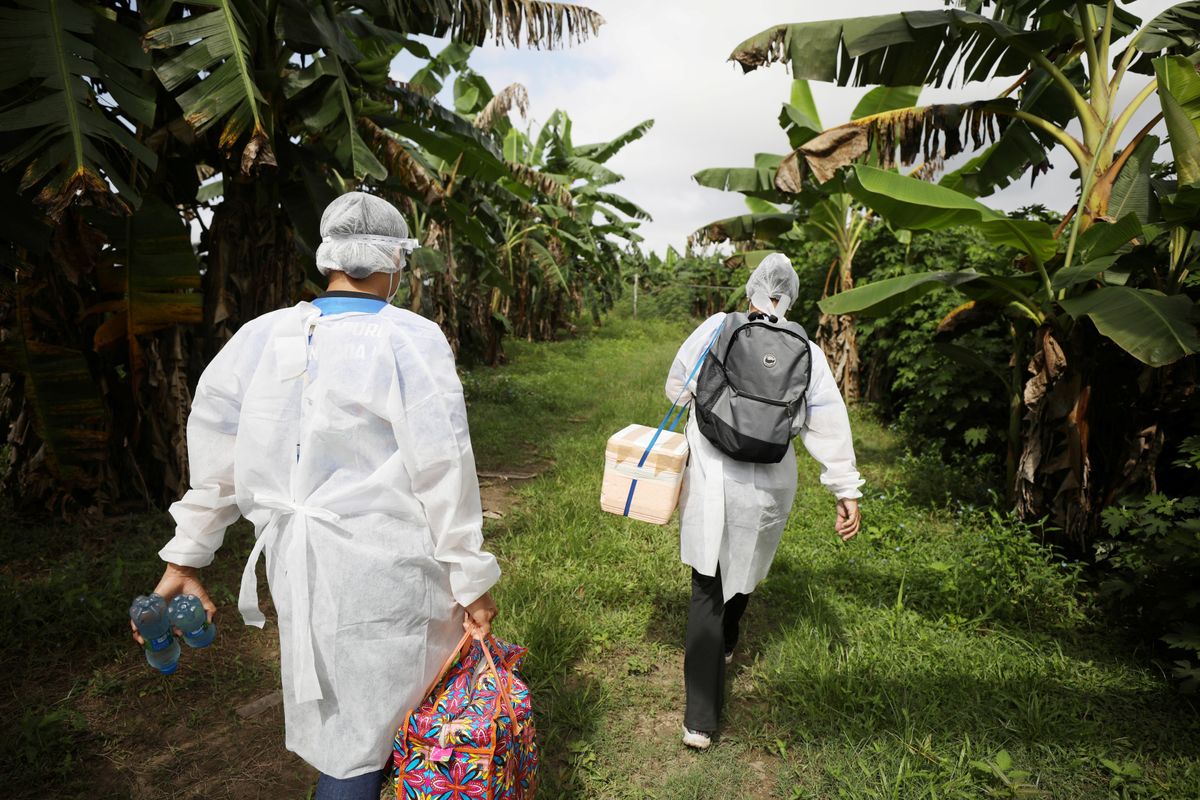Brazil's COVID nightmare: President Jair Bolsonaro's pandemic leadership in Brazil has been characterized by denial and incompetence, leading to the world's second highest death toll behind the US. But why is Brazil's COVID experience so bad even in a year of global catastrophe? First, the new strain out of Brazil, which mutated because the virus was allowed to run rampant, might be changing the pandemic's trajectory in a big way, experts say. Second, in the hard-hit city of Manaus in the Amazon rainforest, which was thought to have developed high levels of immunity because of a massive outbreak last year, many people are now getting reinfected and becoming very sick. Hospitals in Manaus are again inundated, and people are dying simply because there isn't enough oxygen support to go around. Additionally, in playing down the virus' severity and employing a lax approach to vaccine procurement, Bolsonaro cost the country precious time: Brazil now has 6 million doses handy, enough to vaccinate just 3 million people out of a population of 213 million. Yet the president is still sowing fear and doubt: "If you turn into a crocodile, that's your problem," he said about why he's not getting vaccinated.
Biden's Iran challenge: The Biden administration has made clear that reining in Iran's nuclear ambitions is a foreign policy priority. But how — and when — to begin serious dialogue with the regime remains to be seen. While US Secretary of State Antony Blinken believes in re-engagement because he says Iran has a breakout time (the time needed to ramp up uranium enrichment to make a nuclear weapon) of about "three to four months," Blinken, a moderate, also remains cautious. He argues that rejoining the 2015 nuclear deal "would take some time" and depends on Tehran's willingness to comply with the JCPOA provisions. But Biden's National Security Adviser Jake Sullivan recently seemed to suggest a speedier timeline, citing the urgency of curtailing Iran's bellicose behavior and nuclear program, which have ramped up in recent months. The UN's nuclear watchdog has estimated that Iran's stockpile of enriched uranium had risen 10 times more than that allowed under the deal's terms (3.67 percent) to about 20 percent. Clearly, managing the situation with Iran is the Biden administration's first major foreign policy test.
India's COVID budget: The Indian government on Tuesday unveiled a $477 billion national budget proposal that aims to significantly boost health spending for the next 12 months as the country continues to battle the world's second highest COVID infection rate. Reactions to the proposal so far have been mixed: For the opposition it doesn't provide enough direct relief for Indians who have lost their jobs during the pandemic, while some economists have lauded the budget for what they say are realistic expectations on revenues to encourage future spending without inflation as the country's GDP is expected to grow at a lower-than-expected rate this year. But opponents of the plan say that this modest approach will hit the neediest Indians hardest. Importantly, the proposal includes no extra support for farmers, who have spent the last two months protesting against new laws to make Indian agriculture more-business friendly that smallholders fear will put them at the mercy of large agribusiness corporations. We're watching to see if Prime Minister Narendra Modi's gamble on a swift "V-shaped" economic recovery for India — which largely depends on the government's ability to create jobs in the informal sector — pays off, and whether his penny-pinching with farmers will revive the angry mob of tractors.

















